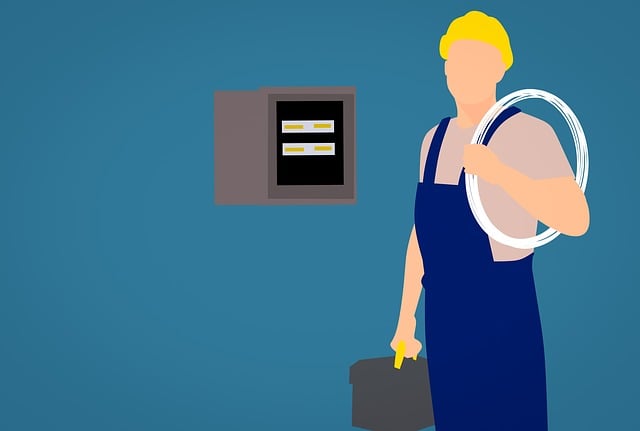Contractor loans offer tailored financial support for construction professionals, addressing seasonal cash flow challenges with flexible terms. Secured by materials, labor, and unexpected costs, these loans fund both short-term renovations and long-term projects. Lenders assess successful project history, financial stability, expertise, and industry network to approve funding, crucial for self-employed contractors or established businesses aiming for project success and business growth. Various loan types, including government-backed SBA loans, cater to specific needs, with strategic application involving document gathering, thorough research, and accurate disclosures through reputable institutions.
“Looking for financial backing to fuel your construction projects? Contractor loans could be the solution you need. This comprehensive guide delves into the world of contractor financing, offering a detailed look at how these loans work and who they benefit. We explore various loan types available, ensuring every contractor finds the right fit. From eligibility criteria to securing your loan, this article provides a step-by-step roadmap, making it easier to navigate the process. Discover the power of contractor loans and take control of your construction ventures.”
- Understanding Contractor Loans: A Comprehensive Overview
- Who Qualifies for Contractor Loans?
- Types of Contractor Loan Options
- How to Secure a Contractor Loan: Step-by-Step Guide
Understanding Contractor Loans: A Comprehensive Overview

Contractor loans are financial instruments designed specifically for construction professionals, offering a unique opportunity to access capital for various business needs. These loans cater to contractors’ dynamic and often unpredictable cash flow patterns, providing much-needed flexibility in managing projects and expenses. By understanding contractor loans, entrepreneurs in the building sector can make informed decisions about their financial strategies.
These loans are characterized by their ability to fund both short-term and long-term construction projects, including renovations, expansions, or new builds. Lenders offer competitive interest rates and tailored repayment terms, recognizing the seasonal fluctuations and potential delays inherent in the contracting industry. Whether self-employed or leading a team, contractors can leverage these loans to secure materials, hire labor, or manage unexpected costs, ultimately contributing to project success and business growth.
Who Qualifies for Contractor Loans?

Contractor loans are a valuable resource for those in the construction industry who need funding for their projects or business operations. To qualify for such loans, individuals must typically meet certain criteria. Often, lenders look for contractors with a proven track record of successful projects and a stable financial history. This includes a steady cash flow and the ability to repay the loan over time.
Additionally, lenders may consider factors like the scale and scope of past projects, the contractor’s expertise in their field, and their network within the industry. Those who are self-employed or have a well-established contracting business are more likely to be approved for contractor loans. Lenders assess each application individually, ensuring that the borrower has a viable plan for project completion and can demonstrate their capability to manage financial obligations effectively.
Types of Contractor Loan Options

Contractor loans are a crucial financial tool for many professionals in the construction industry. There are several types available, each catering to different needs and project stages. One popular option is the short-term loan, designed for immediate funding requirements, such as purchasing materials or covering labor costs. These loans typically have faster approval processes but offer shorter repayment periods.
Another common type is the long-term loan, suitable for larger projects that span several months or even years. These provide contractors with more flexible repayment options and lower interest rates, making them ideal for extensive renovation projects or new construction endeavors. Additionally, there are government-backed loans, like those from the Small Business Administration (SBA), which offer collateral protection and competitive terms, further enhancing access to capital for contractors.
How to Secure a Contractor Loan: Step-by-Step Guide

Securing a contractor loan can seem like a daunting task, but with a clear, strategic approach, it becomes manageable. Here’s a step-by-step guide to help contractors navigate this process effectively:
1. Assess Your Financial Situation: Start by evaluating your current financial health. Gather your income statements, bank statements, and any existing loan documents. Understand your cash flow, outstanding debts, and the amount you require for your construction project. This step is crucial as it helps lenders assess your ability to repay.
2. Determine Loan Requirements: Different contractors have varying needs. Identify the purpose of the loan—is it for equipment purchase, material costs, or labor? Calculate the total project cost and factor in a buffer for unforeseen expenses. Clearly defining your requirements makes it easier to find suitable loan options tailored to your needs, whether they’re short-term working capital loans or long-term construction financing.
3. Explore Loan Types: Contractor loans come in various forms, including bank loans, government-backed programs, and alternative lenders. Research and compare different types based on interest rates, repayment terms, and eligibility criteria. Consider factors like loan limits, application processes, and any additional requirements specific to each option.
4. Prepare Necessary Documents: Lenders will require detailed financial information to evaluate your application. Gather documents such as tax returns, business licenses, insurance policies, and financial statements. Ensure they are up-to-date and accurate to streamline the loan application process.
5. Apply for a Loan: Choose a reputable lender or financial institution that specializes in contractor loans. Complete the application form, providing all the required information honestly and accurately. Be prepared to answer questions about your business and financial history.
Contractor loans are a vital financial tool for professionals in the construction industry, offering flexible financing options tailored to their unique needs. By understanding the various loan types and qualification criteria, contractors can access the capital required to grow their businesses, secure projects, and manage cash flow effectively. This comprehensive guide has shed light on the key aspects of contractor loans, empowering contractors to make informed decisions and navigate the loan process with confidence.
